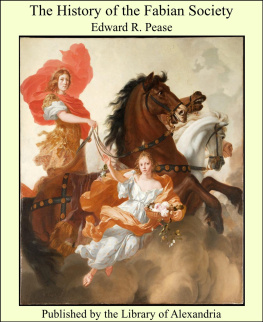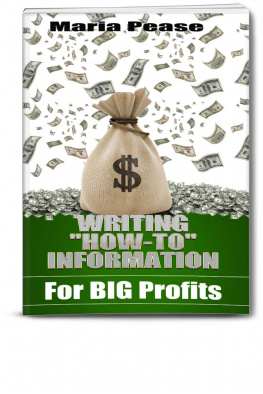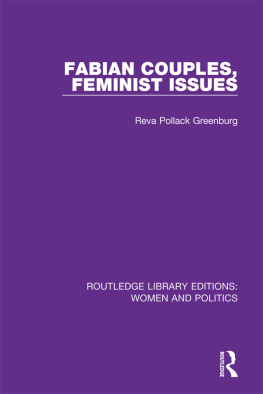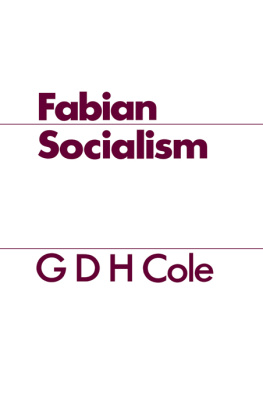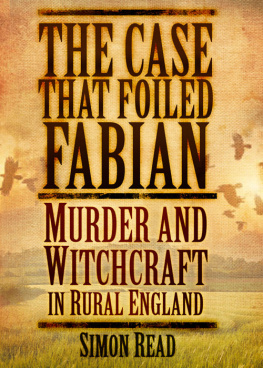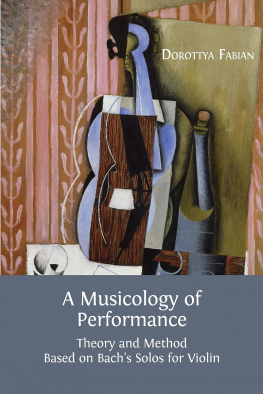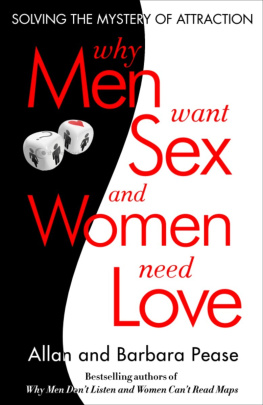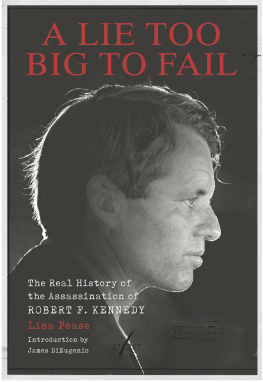Preface
The History of the Fabian Society will perhaps chiefly interest the members, present and past, of the Society. But in so far as this book describes the growth of Socialist theory in England, and the influence of Socialism on the political thought of the last thirty years, I hope it will appeal to a wider circle.
I have described in my book the care with which the Fabian Tracts have been revised and edited by members of the Executive Committee. Two of my colleagues, Sidney Webb and Bernard Shaw, have been good enough to revise this volume in like manner, and I have to thank them for innumerable corrections in style, countless suggestions of better words and phrases, and a number of amplifications and additions, some of which I have accepted without specific acknowledgment, whilst others for one reason or another are to be found in notes; and I am particularly grateful to Bernard Shaw for two valuable memoranda on the history of Fabian Economics, and on Guild Socialism, which are printed as an appendix.
The MS. or proofs have also been read by Mrs. Sidney Webb, Mrs. Bernard Shaw, Sir Sydney Olivier, Graham Wallas, W. Stephen Sanders, and R.C.K. Ensor, to each of whom my cordial thanks are due for suggestions, additions, and corrections.
To Miss Bertha Newcombe I am obliged for permission to reproduce the interesting sketch which forms the frontispiece.
E.R.P.
THE PENDICLE,
LIMPSFIELD,
SURREY,
January, 1916.
Contents
The Sources of Fabian Socialism
The ideas of the early eightiesThe epoch of EvolutionSources of Fabian ideasPositivismHenry GeorgeJohn Stuart MillRobert OwenKarl MarxThe Democratic Federation"The Christian Socialist"Thomas Davidson
The Foundations of the Society: 1883-4
Frank Podmore and Ghost-huntingThomas Davidson and his circleThe preliminary meetingsThe Fellowship of the New LifeFormation of the SocietyTh career of the New Fellowship
The Early Days: 1884-6
The use of the word SocialismApproval of the Democratic FederationTract No. IThe Fabian MottoBernard Shaw joinsHis first TractThe Industrial Remuneration ConferenceSidney Webb and Sydney Olivier become membersMrs. Annie BesantShaw's second TractThe Tory Gold controversy"What Socialism Is"The Fabian Conference of 1886Sidney Webb's first contribution, "The Government Organisation of Unemployed Labour"
The Formation of Fabian Policy: 1886-9
The factors of success; priority of date; the men who made itThe controversy over policyThe Fabian Parliamentary League"Facts for Socialists"The adoption of the BasisThe seven Essayists in commandLord HaldaneThe "Essays" as LecturesHow to train for Public LifeFabians on the London School Board"Facts for Londoners"Municipal Socialism"The Eight Hours Bill"
"Fabian Essays" and the Lancashire Campaign: 1890-3
"Fabian Essays" publishedAstonishing successA new presentation of SocialismReviewed after twenty-five yearsHenry HutchinsonThe Lancashire CampaignMrs. Besant withdraws"Fabian News"
"To your tents, O Israel": 1894-1900
Progress of the SocietyThe Independent Labour PartyLocal Fabian SocietiesUniversity Fabian SocietiesLondon Groups and Samuel ButlerThe first Fabian ConferenceTracts and LecturesThe 1892 Election ManifestoThe Newcastle ProgramThe Fair Wages PolicyThe "Fortnightly" articleThe Intercepted Letter of 1906
"Fabianism and the Empire": 1900-1
The Library and Book BoxesParish CouncilsThe Workmen's Compensation ActThe Hutchinson TrustThe London School of EconomicsEducational LecturesElectoral PolicyThe controversy over the South African WarThe publication of "Fabianism and the Empire"
Education: 1902-5, and the Labour Party: 1900-15
Housing"The Education muddle and the way out"Supporting the ConservativesThe Education Acts of 1902 and 1903Feeding School ChildrenThe Labour Representation Committee formedThe Fabian Election FundWill Crooks elected in 1910A Fabian Cabinet MinisterResignation of Graham WallasThe younger generation: H.W. Macrosty, J.F. Oakeshott, John W. MartinMunicipal Drink TradeTariff ReformThe Decline of the Birth-rate
The Episode of Mr. Wells: 1906-8
His lecture on administrative areas"Faults of the Fabian"The Enquiry CommitteeThe Report, and the ReplyThe real issue, Wells v. ShawThe women interveneThe Basis alteredThe new ExecutiveMr. Wells withdrawsHis work for SocialismThe writing of Fabian Tracts
The Policy of Expansion: 1907-12
Statistics of growthThe psychology of the RecruitFamous FabiansThe Arts GroupThe NurseryThe Women's GroupProvincial Fabian SocietiesUniversity Fabian SocietiesLondon Groups revivedAnnual ConferencesThe Summer SchoolThe story of "Socialist Unity"The Local Government Information BureauThe Joint Standing CommitteeIntervention of the International Socialist Bureau
The Minority Report, Syndicalism and Research:
1909-15
The emergence of Mrs. Sidney WebbThe Poor Law CommissionThe Minority ReportUnemploymentThe National Committee for the Prevention of Destitution"Vote against the House of Lords"Bernard Shaw retiresDeath of Hubert BlandOpposition to the National Insurance BillThe Fabian Reform CommitteeThe "New Statesman"The Research Department"The Rural Problem""The Control of Industry"SyndicalismThe GuildsmenFinal StatisticsThe War
The Lessons of Thirty Years
Breaking the spell of MarxismA French verdictOrigin of Revisionism in GermanyThe British School of SocialismMr. Ernest Barker's summaryMill versus MarxThe Fabian MethodMaking Socialists or making SocialismThe life of propagandist societiesThe prospects of Socialist UnityThe future of Fabian ideasThe test of Fabian success
A. On the History of Fabian Economics. By Bernard Shaw
B. On Guild Socialism. By Bernard Shaw
The Basis of the Fabian Society
List of the names and the years of office of the ninety-six members of the Executive Committee, 1884-1915
Complete List of Fabian publications, 1884-1915, with names of authors

